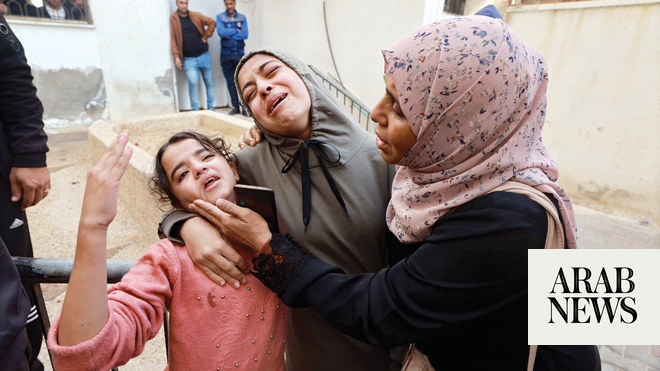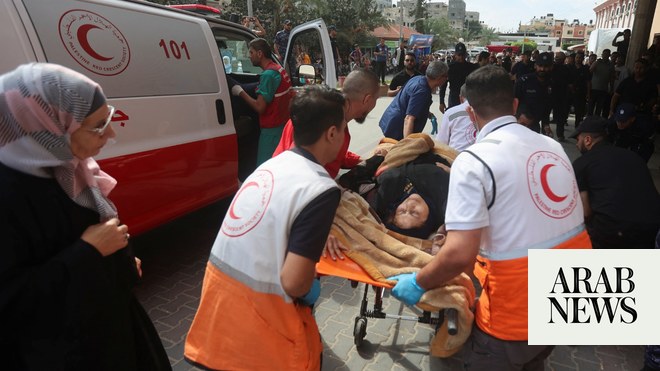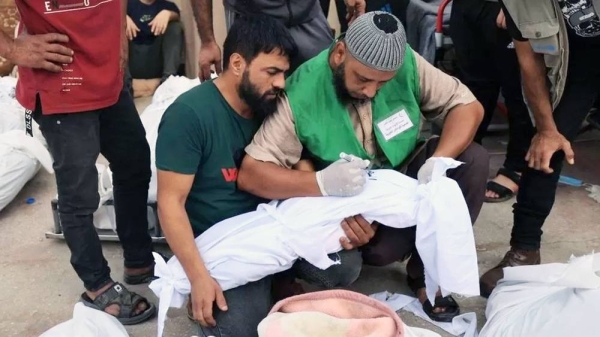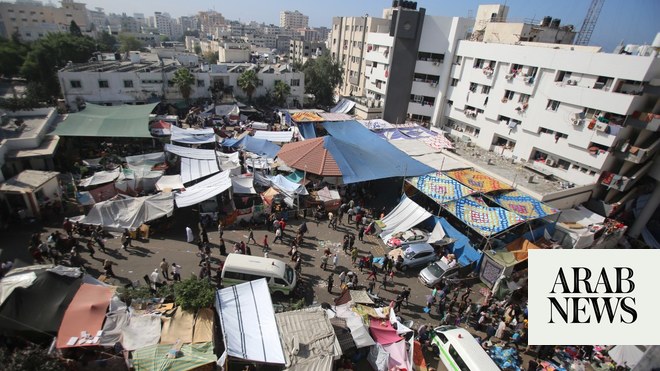
Palestinian Health Ministry says 316 have been killed since Friday in Gaza since the truce expired
GAZA: In southern Gaza’s Nasser Hospital, a young man cradled the lifeless body of his brother and then reached out to try to grab a medic running past him in the corridor.
“My brother!” the man yelled out, crying and slapping the floor as others crowded around him, seeking treatment for their wounded and mourning their loved ones on Sunday, the third day of renewed warfare and Israeli bombardment.
The hospital is one of only a handful operating in Khan Younis, a southern city that residents say is one of the focuses of the Israeli offensive that resumed on Friday after the collapse of a truce with Hamas.
Nearby, doctors stepped over bodies and pools of blood as they rushed to their next case, and relatives brought more dazed and sometimes unconscious children through the main doors.
Footage taken by Reuters showed about a dozen young people needing treatment, several of them with what looked like serious injuries.
The UN and aid groups say dozens of medics have been killed since the war began and basic supplies, including fuel to run generators, are running short in hospitals and clinics.
More than 15,500 people have been confirmed killed in Gaza since the start of the conflict, according to Gaza’s Health Ministry.
The Palestinian Health Ministry said on Sunday that 316 had been killed since Friday in Gaza since the truce expired following the breakdown in talks over an exchange of prisoners and hostages.
There was no immediate comment from Israel on the reports of Sunday’s strikes.
The Israeli military earlier ordered Palestinians to evacuate several areas in and around Khan Younis and posted a map highlighting shelters they should go to.
But residents said that areas they had been told to go to were themselves coming under attack.
One man at Nasser Hospital told Reuters that an air strike had hit a house in the city, and he had carried a young boy who was injured to the hospital, but the boy had died in his arms on the way.
Elsewhere in Khan Younis, families gathered at funerals.
One man, Akram El-Rakab, said he was burying his son as well as a sister and a nephew.












